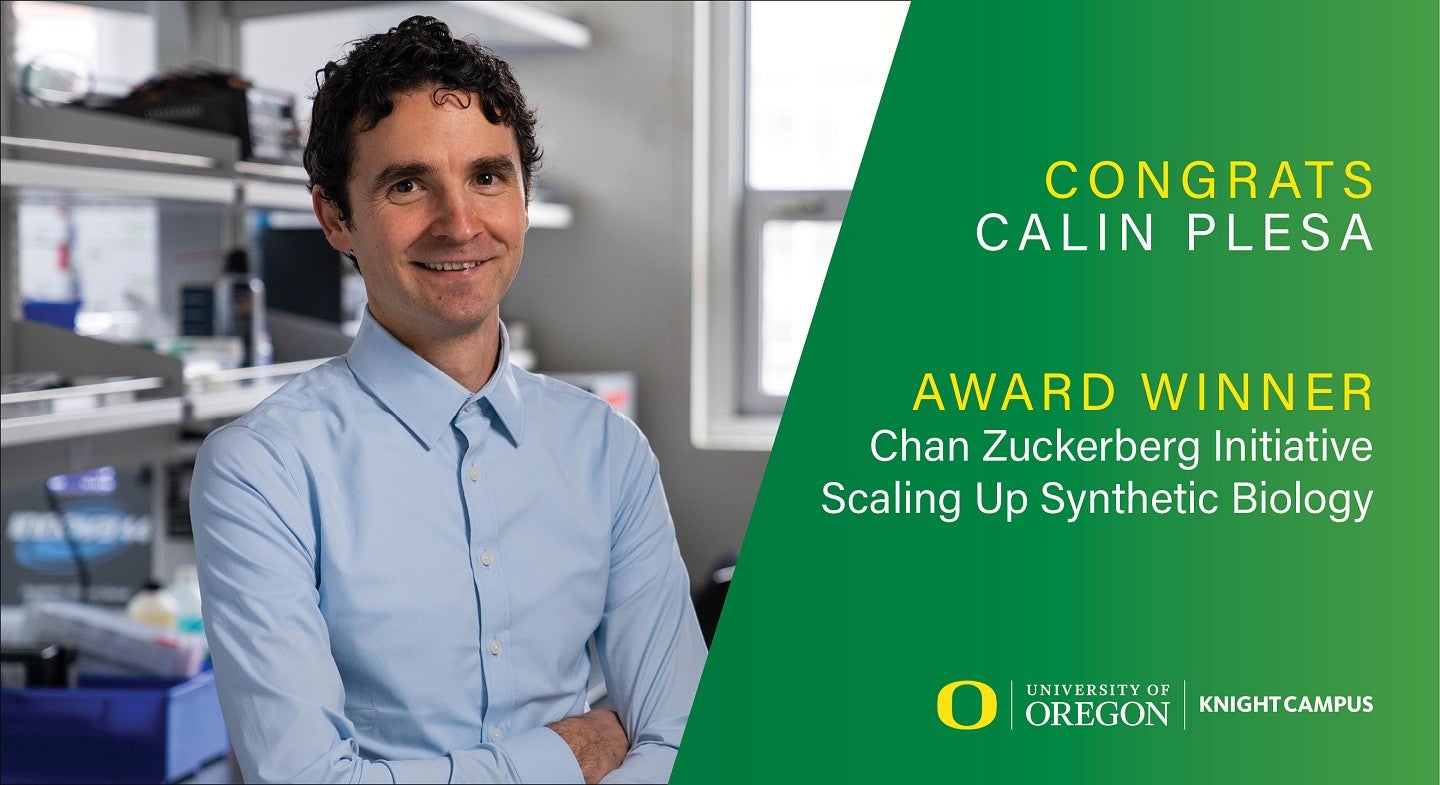
The Knight Campus researcher and his team will apply the grant to scaling up his revolutionary DropSynth technology.
February 3, 2025
Calin Plesa, an assistant professor in the Department of Bioengineering at the Phil and Penny Knight Campus for Accelerating Scientific Impact, has received a prestigious grant from the Chan Zuckerberg Initiative (CZI) to support his groundbreaking work in large-scale gene synthesis. This award is part of CZI’s Scaling Up Synthetic Biology program, which aims to overcome key barriers in scaling, throughput and cost of synthetic biology methods.
One of the biggest challenges in synthetic biology, a field that studies and designs biological systems, is efficiently generating and analyzing large numbers of genetic sequences to explore their function. DNA is made up of smaller units called genes. Sometimes genes contain errors, or mutations, that can cause diseases or increase the risk of certain health conditions. To understand these effects, researchers need to study not just one gene, but entire libraries of genes with different mutations to compare their functions. However, traditional methods for synthesizing and testing genes are costly and time-consuming. This bottleneck limits the ability to rapidly analyze genetic variation or mutations at scale.
Plesa and his team have revolutionized this field with DropSynth, a novel technology that assembles large libraries of genes rapidly, and at a fraction of the cost of traditional methods. For example, Plesa and his team can currently generate more than 1,500 synthetic genes in a single reaction at a cost below $2 per gene. This innovation has allowed researchers to create large libraries of genes, enabling high-throughput screens to identify the effects of genetic mutations — a fundamental step forward in understanding the genetic basis behind many human disease and conditions.
The DropSynth gene synthesis technology is currently being commercialized by SynPlexity, a startup out of the Plesa lab which is operating in the Papé Family Innovation Center at the Knight Campus.
The CZI grant will support Plesa and his collaborators, Sudarshan Pinglay (University of Washington) and Sanjay Srivatsan (Fred Hutchinson Cancer Center), in scaling up DropSynth’s capacity by more than sixfold. Importantly, Plesa says, this expansion will maintain DropSynth’s hallmark features of accessibility and affordability, ensuring its continued availability as a transformative tool for researchers worldwide.


